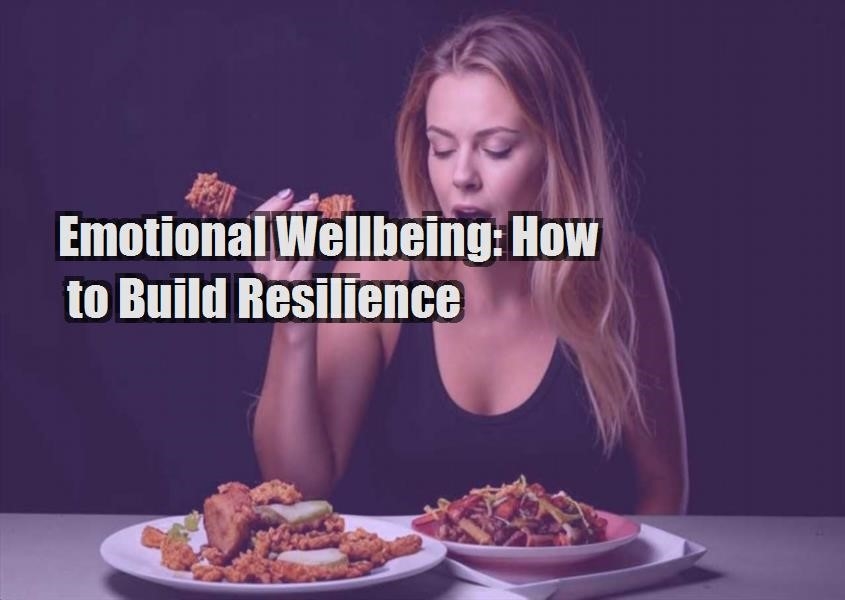Emotional wellbeing is a crucial aspect of overall health, impacting how we think, feel, and behave in our daily lives. Building resilience—the ability to recover quickly from difficulties—is essential for maintaining emotional balance and navigating lifes challenges. This article explores effective strategies to enhance your emotional wellbeing and build resilience.
Understanding Emotional Wellbeing
Emotional wellbeing involves being aware of and accepting your emotions, managing stress effectively, and maintaining healthy relationships. It encompasses a range of factors, including self-esteem, optimism, and the ability to cope with adversity. When your emotional wellbeing is strong, you are better equipped to handle setbacks and challenges.
Importance of Emotional Wellbeing
Emotional wellbeing is linked to various aspects of physical health, including reduced risk of chronic diseases, improved immune function, and better quality of sleep. Additionally, it influences mental health, contributing to lower levels of anxiety and depression. By prioritizing emotional wellbeing, you can enhance your overall quality of life.
Strategies for Building Resilience
1. Cultivate a Positive Mindset
A positive mindset is the foundation of resilience. It involves focusing on the positives in life, practicing gratitude, and maintaining an optimistic outlook. Here are some ways to cultivate positivity:
- Practice Gratitude: Take time each day to reflect on things you are grateful for. This simple practice can shift your focus from what is going wrong to what is going right.
- Reframe Negative Thoughts: Challenge negative thoughts by considering alternative perspectives. Ask yourself if there is another way to view the situation.
- Surround Yourself with Positivity: Spend time with people who uplift and support you. Positive social interactions can boost your mood and resilience.
2. Develop Strong Social Connections
Building and maintaining strong relationships is key to emotional wellbeing and resilience. Social connections provide support, increase feelings of belonging, and help you manage stress. Here are some tips for fostering strong social connections:
- Stay Connected: Regularly reach out to friends and family, even if its just a quick message or phone call.
- Join Groups: Participate in clubs, organizations, or community activities that interest you. This can help you meet new people and build a support network.
- Be a Good Listener: Show empathy and understanding when others share their experiences. Being a good listener strengthens relationships and builds trust.
3. Practice Self-Care
Self-care is about taking deliberate actions to care for your physical, mental, and emotional health. It plays a significant role in building resilience. Here are some self-care practices to incorporate into your routine:
- Exercise Regularly: Physical activity can boost your mood and reduce stress. Aim for at least 30 minutes of moderate exercise most days of the week.
- Eat a Balanced Diet: Proper nutrition supports overall health and can affect your mood and energy levels. Eat a variety of fruits, vegetables, whole grains, and lean proteins.
- Get Enough Sleep: Quality sleep is essential for emotional regulation and resilience. Aim for 7-9 hours of sleep per night.
- Engage in Relaxation Techniques: Practices such as meditation, yoga, and deep breathing can help reduce stress and promote emotional balance.
4. Build Problem-Solving Skills
Effective problem-solving skills enable you to navigate challenges more efficiently and reduce stress. Here are some strategies to enhance your problem-solving abilities:
- Identify the Problem: Clearly define the issue you are facing. Understanding the problem is the first step toward finding a solution.
- Brainstorm Solutions: Generate a list of potential solutions without evaluating them. This encourages creative thinking.
- Evaluate and Choose: Assess the pros and cons of each potential solution and choose the one that best addresses the problem.
- Take Action: Implement the chosen solution and monitor its effectiveness. Be prepared to adjust your approach if necessary.
5. Develop Coping Strategies
Healthy coping strategies are essential for managing stress and building resilience. Here are some effective coping techniques:
- Practice Mindfulness: Mindfulness involves being present in the moment and observing your thoughts and feelings without judgment. This practice can reduce stress and improve emotional regulation.
- Engage in Hobbies: Activities that you enjoy can provide a sense of accomplishment and serve as a distraction from stressors.
- Seek Support: Dont hesitate to reach out to friends, family, or a mental health professional when you need help managing stress.
Conclusion
Building resilience is a continuous process that involves cultivating a positive mindset, developing strong social connections, practicing self-care, enhancing problem-solving skills, and adopting healthy coping strategies. By prioritizing your emotional wellbeing and implementing these strategies, you can better navigate lifes challenges and maintain a balanced, fulfilling life.
Remember, emotional wellbeing and resilience are interconnected. Strengthening one will invariably strengthen the other, leading to a more resilient and emotionally balanced you.







